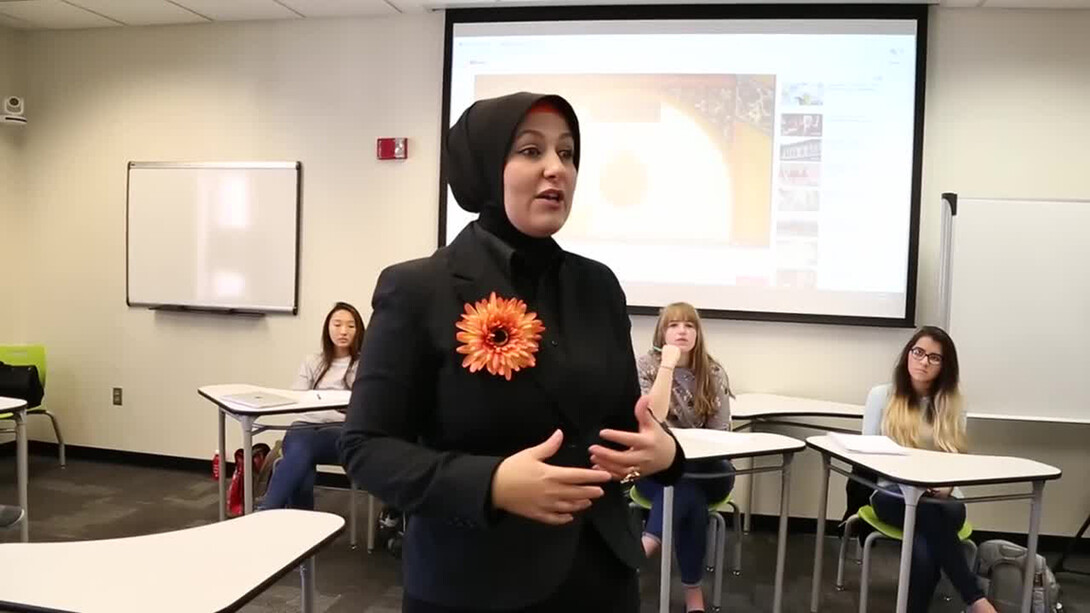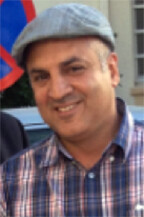
A new virtual exchange course is pairing University of Nebraska–Lincoln students with cohorts in Oman for a semester-long exploration of women featured in the Qur’an.
The class is the first through Nebraska’s Global Virtual Project, a new program that offers online virtual exchange opportunities with classrooms across the Middle East. The project is supported by the Aspen Institute’s Stevens Initiative and the U.S. Department of State’s Bureau of Educational and Cultural Affairs.
The “Women in the Qur’an” course is being co-taught by Nebraska’s Abla Hasan, assistant professor of practice in modern languages and literatures, and Ali Jamal Arafeh of the University of Nizwa in Oman. The course will allow students at both institutions to explore and debate topics in Arabic and Islamic culture.
“Students will be encouraged to use their critical and analytical skills to gain knowledge about Qur’an positions on gender equality, sexuality, domestic violence and women rights, among others,” Hasan said.
The discussions will be assisted by Zoom, the university’s new online web conference platform.
“The energy, insight, and expertise Dr. Hasan brings to the project of sharing her course on ‘Women in the Qur’an’ with students at Nizwa University are unsurpassed,” said Patty Simpson, chair and professor of modern languages and literatures. “With a spirit of openness — and a few carefully planned upgrades — we can truly foster local and global learning experiences.”

Arafeh considers the virtual exchange to be “a rich source where cultures meet and minds are opened away from the different commitments and constraints.”
Students participating in the course will develop comparative reading abilities through distinct commentaries of the Qur’an, as well as build skills in literary analysis and cross-cultural communication.
The course is currently open for enrollment, listed as ARAB 306. It is open to 15 students at Nebraska with another 15 at the University of Nizwa. The course meets from 9 to 11:50 a.m. Wednesdays in the Department of Modern Languages and Literatures’ Global Classroom, which is in Burnett Hall, Room 301.
“This is an opportunity to increase our students’ global competencies through technology,” said Sonia Feigenbaum, associate vice chancellor for international and global strategies. “Together faculty and students will learn to negotiate meaning and appreciate cultural and historical contexts.”
Nebraska‘s Office of Global Strategies will coordinate six additional virtual exchange courses in distinct academic disciplines throughout 2018. These courses will include “Intercultural Communications,” which will be led by Charles Braithwaite, a research assistant professor with Nebraska’s Center for Great Plains Studies, and launches in March in collaboration with the Oman Tourism College.
Learn more about Nebraska’s Global Virtual Project and affiliated courses.







